Absolutely the best attorney for getting your VA benefits. After 7 years of denial, I found Brendan Garcia of VetLaw, He reviewed my case, set up a plan , scheduled my video hearing in front of a Veteran law judge, flew out to Phoenix to be there with me during the hearing. Hired a doctor to help draft a report to help my case. When all the smoked cleared, I’m now collecting max disability monthly, back pay beyond my wildest dreams. Brendan Garcia never stopped. He is an expert in Veterans law. Best decision of my life was to have him on my side. Bar none, Brendan is a terrific VA benefits attorney!
Vet Law represents claimants before the Court of Appeals for Veterans Claims. This Court is not part of the Department of Veterans Affairs. Rather, the Court of Appeals for Veterans Claims is a federal court that hears a veteran’s appeal of the Board of Veterans’ Appeals decision.
The Board’s decision represents the VA’s final action in the claim. However, the CAVC court has the jurisdiction to review—and, if warranted—vacate or reverse the VA’s decision.
Read More about Understanding BVA and CAVC ClaimsBelow, you’ll find case summaries highlighting our strategies and outcomes in cases before the CAVC court.
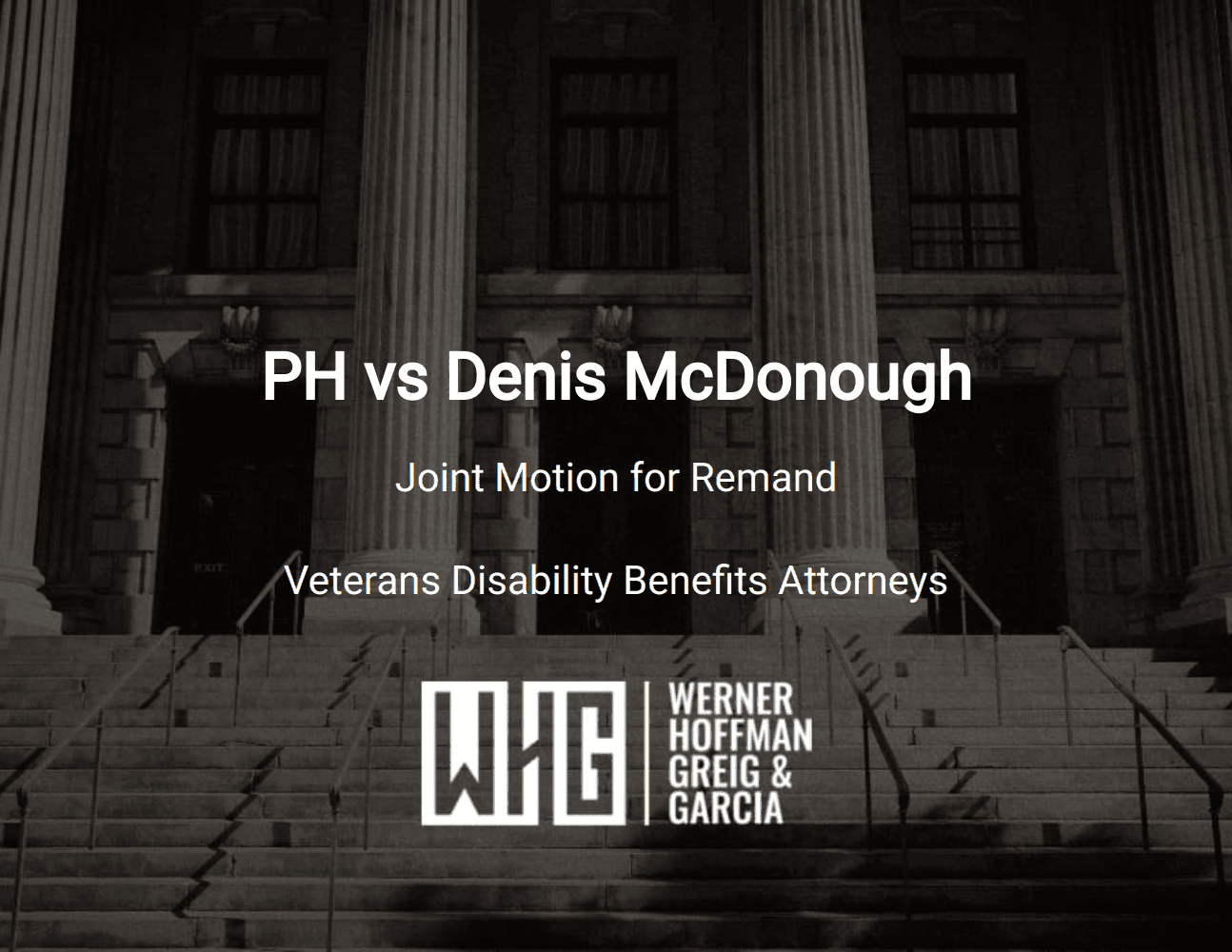
PH vs Denis McDonough
September 23, 2024
WHG appealed to the Court a Board of Veterans’ Appeals decision that denied service connection for obstructive sleep apnea (OSA). This claim was linked to the veteran’s service-connected generalized anxiety disorder and major depressive disorder (MDD). The Court agreed to vacate the Board’s decision, emphasizing that the Board failed to ensure the VA met its […]
Read More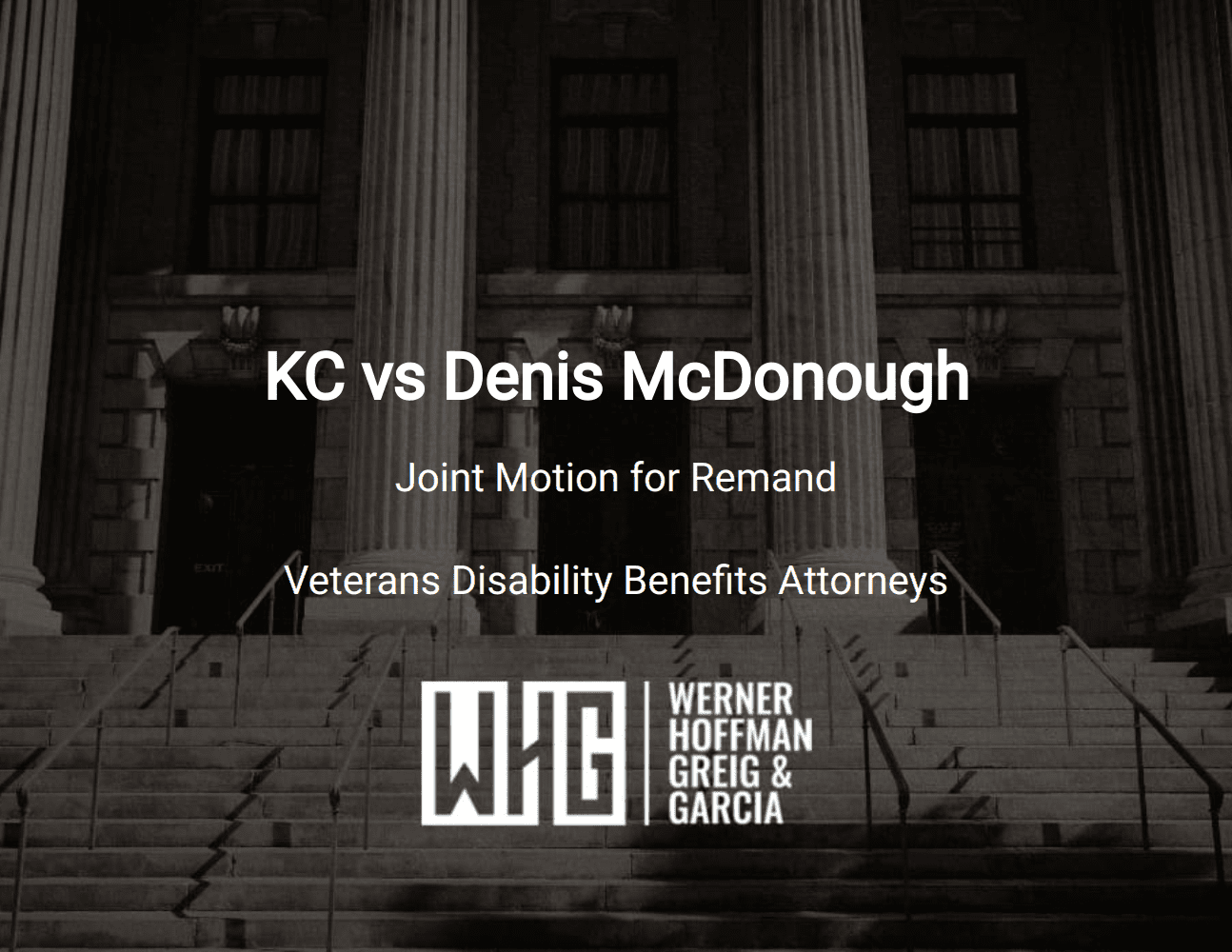
KC vs Denis McDonough
September 23, 2024
Our firm successfully challenged a Board of Veterans’ Appeals decision that denied an increased rating for a veteran’s left medial tibial plateau condition following a stress fracture. We appealed to CAVC because the Board failed to adequately consider critical evidence regarding the veteran’s use of knee braces. The Court agreed to vacate the Board’s decision […]
Read More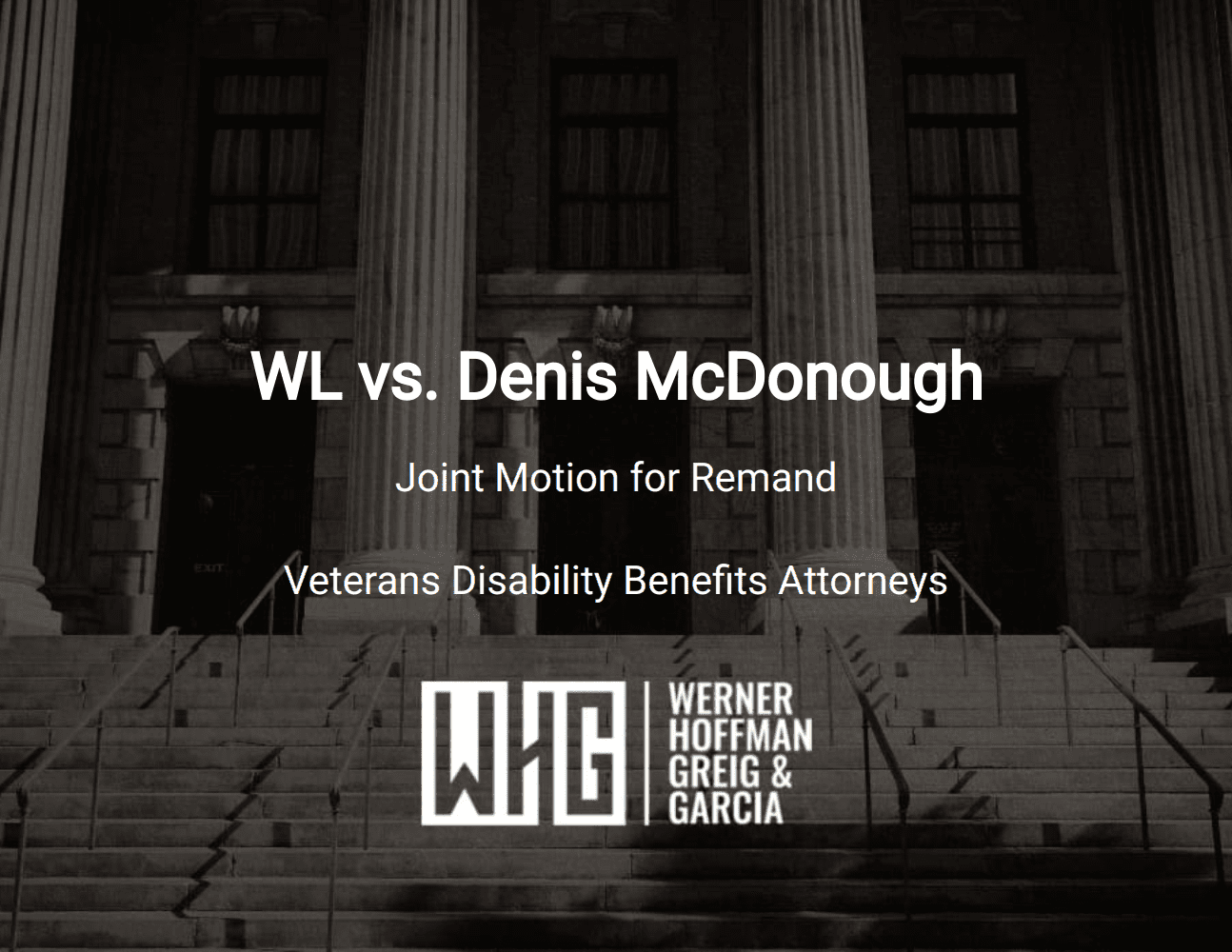
WL vs. Denis McDonough
September 19, 2024
The Court granted the parties’ Joint Motion to vacate a November 28, 2023, decision by the Board of Veterans’ Appeals that denied our client entitlement to a total disability rating based on individual unemployability (TDIU). The parties identified several critical errors in the Board’s reasoning, particularly regarding the evaluation of a March 22, 2020 private […]
Read More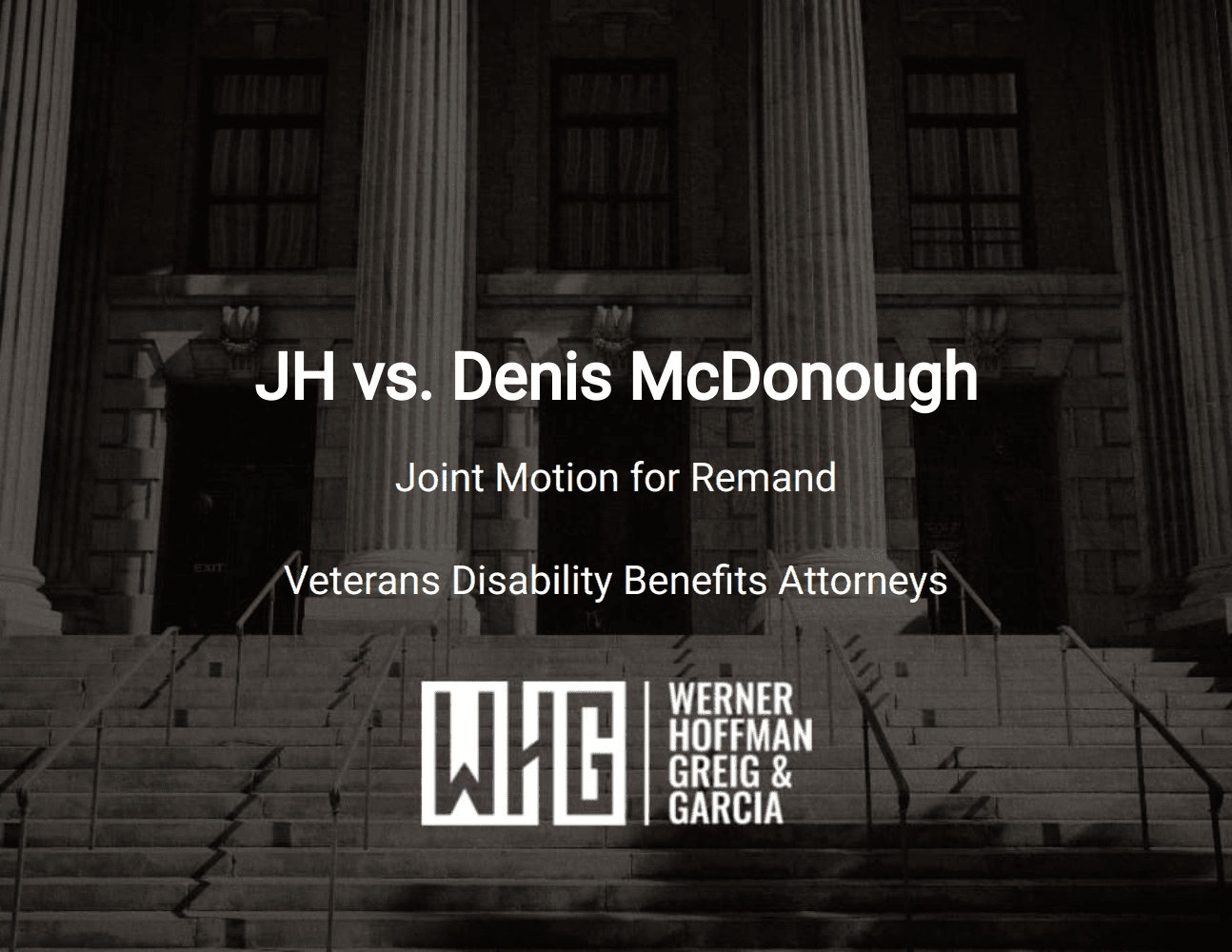
JH vs. Denis McDonough
September 18, 2024
The Court ordered a remand of our client’s total disability rating based on individual unemployability (TDIU) claim. The Secretary agreed there were errors in the Board of Veterans’ Appeals’ decision. Specifically, the Board failed to provide clear reasons for denying Helms’ TDIU based on his service-connected heart disability. The Court highlighted that the Board recognized […]
Read More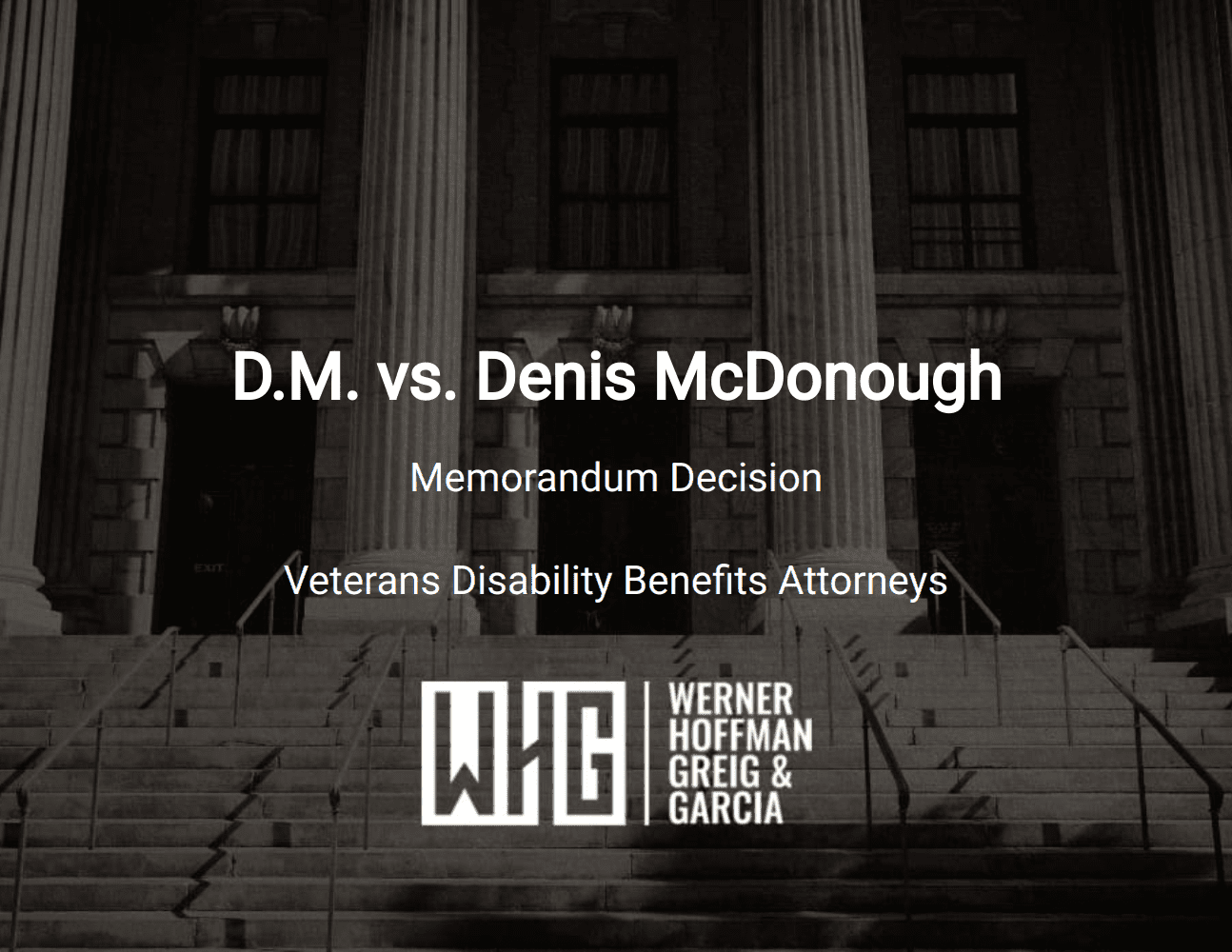
D.M. vs. Denis McDonough
September 16, 2024
Our firm recently secured a major victory at the Court of Appeals for Veterans Claims for a veteran client. The Court vacated a Board of Veterans’ Appeals decision that denied benefits for coronary artery disease (CAD). The veteran, who served in the U.S. Army from 1964 to 1969, sought service connection for CAD, attributing his […]
Read More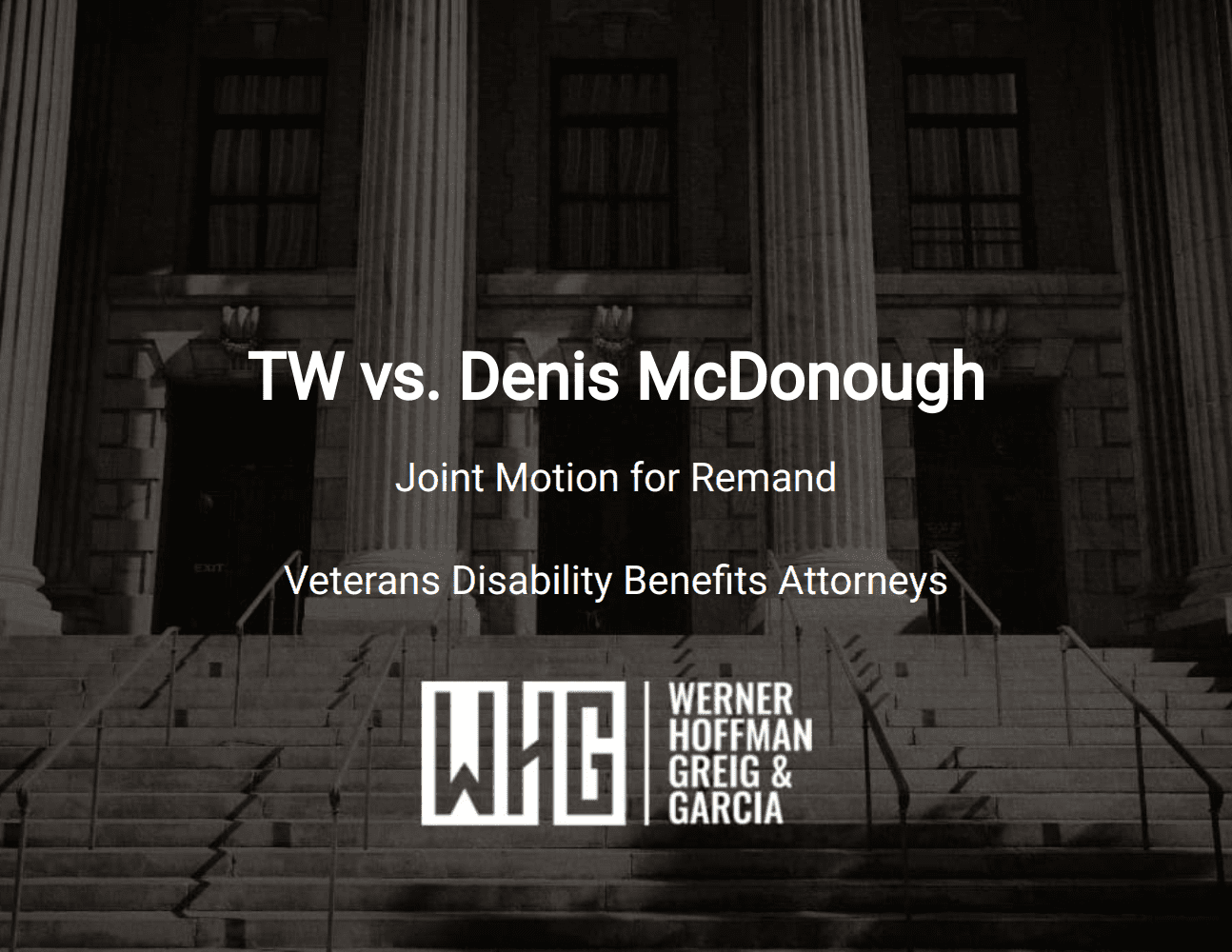
TW vs. Denis McDonough
September 12, 2024
The U.S. Court of Appeals for Veterans Claims agreed to vacate a May 3, 2023, decision by the Board of Veterans’ Appeals. The Board had denied Mr. Walker’s entitlement to service connection for hypertension. The Board found no evidence of hypertension during or shortly after the veteran’s exit from service. But our firm struck an […]
Read MoreQuestions about CAVC
What is the Court of Appeals for Veterans Claims?
The Court, commonly referred to by the acronym CAVC, was established by Congress in 1988 to review VA’s decisions on veterans’ disability claims. Claimants can appeal decisions by the Board of Veterans’ Appeals to the Court to correct any errors in the Board’s decision
How long do I have to file an appeal?
Claimants have 120 days from the date of the Board of Veterans’ Appeals decision to notice an appeal to the Court.
What does it cost?
The exact worth of a personal injury claim can vary based on a number of factors. Some key factors include the extent of the injuries, the costs involved, and the liability of the involved parties. Ultimately, the potential compensation is unique to your situation. Speak with our team to understand the particulars
What options do I have after receiving a decision from the Board of Veterans’ Appeals?
For claims still in the legacy system, an appeal to CAVC is a claimant’s only option to correct an erroneous Board decision. This is generally the rule for Regional Office decisions that pre-date February 19, 2019, for which a VA Form 9 was filed to appeal.
Under the Appeals Modernization Act (AMA), claimants still have the option to appeal to CAVC but can also file a supplemental claim within one year of the Board’s decision. Claimants are allowed to do both at the same time (appeal to CAVC and file a supplemental claim). The modernized system generally applies to Regional Office decisions that post-date February 19, 2019, or where the claimant has opted into the new system.
Claimants must submit new and relevant evidence with a supplemental claim.
Do I have to have an attorney to appeal to CAVC?
An attorney isn’t required; claimants can file their own appeal and represent themselves before the Court. But your best chance of winning your appeal is through someone well-versed in veterans law who can spot any errors made by the Board. Cases at CAVC are adversarial, meaning the claimant and VA are on opposite sides arguing for and against. In every appeal the VA will be represented by an attorney who will argue that the Board made no error and that VA’s decision should be affirmed.
What does a CAVC “win” look like?
When the Court finds the Board erred in its decision, the Court will most often vacate the Board’s decision and remand the claim back to the Board to correct its error and issue a new decision. Occasionally, where the Board’s error is so egregious, the Court will reverse the Board’s finding. Even in this situation, the Court will remand the claim back to the Board for it to issue a new decision.
What’s important to understand is that the Court does not grant or deny claims. Rather, it sits more like a referee to ensure the VA complies with the law and properly applies the facts of each claim to the controlling rules and regulations.
How long does a CAVC appeal take?
On average anywhere from six to eight months to one to two years. For appeals where the claimant is represented by an attorney, the Court provides a process where the two parties can agree the Board erred. This occurs before the parties begin the formal briefing process and, if the Secretary concedes error, can result in a remand within six to eight months of filing the appeal. For claimants represented by attorneys this is the most common result.
For cases that undergo formal briefing that must be reviewed by one of the Court’s judges, it can take roughly one to two years after filing the appeal to get a decision.
What are my options if CAVC affirms the Board’s decision?
Claimants can appeal CAVC decisions to the Court of Appeals for the Federal Circuit and, if necessary, to the U.S. Supreme Court.
For claims governed by the modernized appeals system, claimants can also file a supplemental claim within one year of the Court’s decision. However, the supplemental claim must be accompanied by new and relevant evidence to trigger VA’s obligation to adjudicate the claim.










